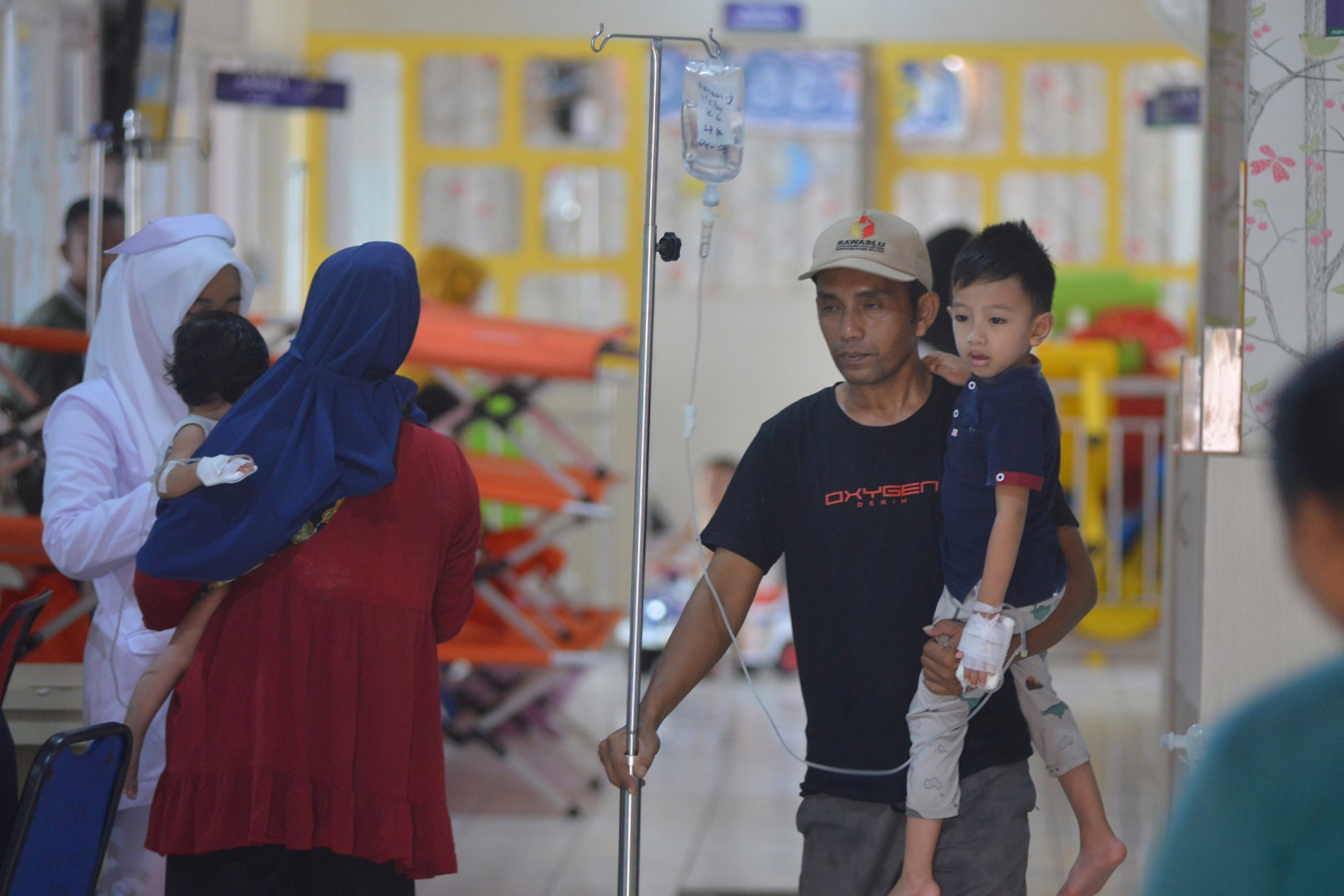Popular Reads
Top Results
Can't find what you're looking for?
View all search resultsPopular Reads
Top Results
Can't find what you're looking for?
View all search resultsNadin Amizah and our questions about a fatherless country
A father's presence is not merely an addition; it is an essential component of a child's developmental ecosystem.
Change text size
Gift Premium Articles
to Anyone
A
recent claim labeling Indonesia the third most "fatherless" country in the world shocked the public. While the research behind this assertion remains a point of discussion, the phenomenon it describes feels undeniably real, a sentiment vividly captured in singer Nadin Amizah's recently screened concert, Selamat Ulang Tahun (Happy Birthday).
For me, the concert transcended a simple poetic-theatrical performance. Nadin orchestrated an emotional banquet, celebrating a daughter's profound love for her mother while honestly portraying the bitter reality of her father's absence. The performance gives voice to the silent space occupied by a daughter growing up with only one of her primary attachment figures.
This narrative is reflected in national data. According to Statistics Indonesia (BPS), one in 10 households (12.73 percent) was headed by a woman, a figure that dramatically increased to 15.82 percent by 2020. Women assume this role for various reasons, including divorce or abandonment. In some instances, the husband is physically present but no longer the breadwinner due to disability or unemployment.
Research by the National Secretariat of Women-Headed Households (PEKKA) and SMERU across 17 provinces in 2011-2012 revealed that female heads of household are more susceptible to structural vulnerabilities like domestic violence, abuse, limited legal documentation, low workforce participation and restricted access to education and health care.
Furthermore, the National Commission on Violence Against Women (Komnas Perempuan) notes their vulnerability to gender-based stigma and discrimination, particularly for divorcees. These women bear not only the economic and caregiving burdens but also face gender-based violence.
Given these conditions, it is unsurprising that the story Nadin portrays resonates with the experiences of many Indonesian children, a reality often overlooked in developmental narratives. They navigate the complexities of relying solely on their mothers and explaining the absence of a figure who should be present.
Nadin depicts the father as a dark, distant silhouette. While a theatrical choice, for many children in Indonesia, this may be a daily reality.



















